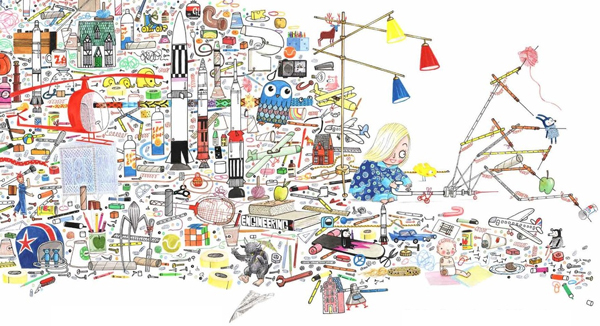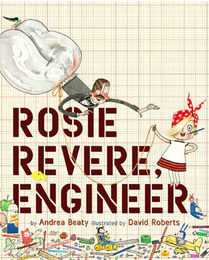
Singer Kristen Lems introduced me to Peggy Seeger’s song, “I’m Gonna Be an Engineer” almost 25 years ago. It wormed its way into my ear when I learned only 7% of the engineering workforce is female. More than 4 times as many men than women are enrolled in graduate school for engineering-related fields.
[Y]ou only need to learn to be a lady
The duty isn’t yours, for to try and run the world
An engineer could never have a baby
Remember, dear, that you’re a girl.
Kristen and Peggy sang that women rarely pursue technical fields because we’re expected to have families, provide a loving home for our husbands, and that engeneering isn’t ladylike (whatever that means).
I had convinced myself the world of work was better these days for women until I learned that only 6% of engineering companies offer flexible work options. 36% report not doing anything at all to improve workforce diversity.
A segment on the PBS NewsHour about the engineering and science gender gap pointed out that a lack of female mentors, subtle discrimination or work conditions in which men talk in a way that women found disrespectful were also common factors.
 Then I found a beacon of hope is Andrea Beaty’s children’s book, Rosie Revere, Engineer. Beaty reminded me that another reason for the gap can be addressed now in our homes and in our schools. Many girls aren’t encouraged to persevere as tinkerers and inventors… makers of what’s next.
Then I found a beacon of hope is Andrea Beaty’s children’s book, Rosie Revere, Engineer. Beaty reminded me that another reason for the gap can be addressed now in our homes and in our schools. Many girls aren’t encouraged to persevere as tinkerers and inventors… makers of what’s next.
Alone in her attic, the moon high above,
dear Rosie made gadgets and gizmos she loved.
And when she grew sleepy, she hid her machines
far under the bed, where they’d never been seen.
Girls, and the women we become, often interpret early failures to mean we need to change course, altering our behavior and the career paths we choose to increase the likelihood we’ll succeed.
This may be the larger challenge for our society–providing an environment for all children to play, try, fail, and try again, with encouragement from family and friends, teachers and mentors. Design thinking, tr ying new things, testing our limits, and believing in ourselves will likely be larger determinants of our futures.
ying new things, testing our limits, and believing in ourselves will likely be larger determinants of our futures.
In this story, Rosie’s great-great-aunt Rose is Rosie’s guardian engineer. Despite Rosie fearing that her inventions are failures, aunt Rose points out, “This great flop is over. It’s time for the next!”
Your brilliant first flop was a raging success!
Come on, let’s get busy and on to the next!”
She handed a notebook to Rosie Revere,
who smiled at her aunt as it all became clear.
Life might have failures, but this was not it.
The only true failure can come if you quit.
Not only is this a wonderful story with imaginative illustrations for young girls, my son (well past picture-book age) learned how millions of women during World War II worked to provide the food and equipment needed for the war effort. He appreciated the message to persevere and I found it inspiring enough to write about.
While I don’t believe engineering firms or technical roles will be welcoming as they should be for women in the near future, I also can’t believe as a society we’ll continue to support this sort of segregation.
Personally, I wish someone had encouraged me from a young age to become a physicist, but I don’t even remembering learning about those sorts of science and engineering jobs when I was growing up.
Opportunities to learn about the wide array of jobs increases every year and it’s up to us to model for young women they truly can be anything they set their minds to be.
If you have a daughter, a granddaughter, a niece or a young female neighbor I encourage you to read her this book and then talk about its implications. Introduce a girl to how engineering skills can give her superpowers, learn together about Rosie the Riveter, fly an airplane together and build gizmos and gadgets and doohickeys, too.
Strong structures support a strong society.
Peggy Seeger, Pete Seeger’s younger sister, sings “I’m Gonna Be an Engineer.”
